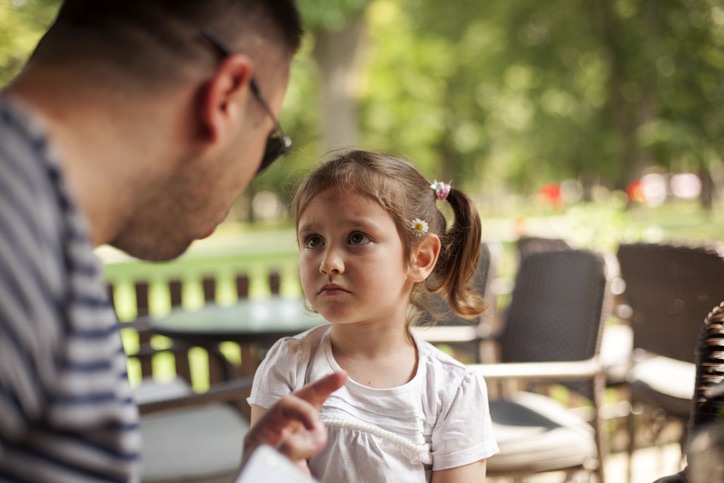Dating with Kids: Helping Your Kids Accept Your New Relationship

Helping children adjust to a new relationship can be challenging, particularly if the new relationship is romantic between their parent and a new partner. How long you have been separated from your spouse, the age of your children when you separated, and your children’s current age all factor into their response. But even the most well-adjusted, typical kids may struggle when their parent begins dating.
If this is your first time dating, seeing mom or dad with someone new can be a shock and discomforting to many kids. The good news is there are ways to introduce your significant other post-divorce while meeting your children’s needs.
Related: 9 Dating Tips for Single Parents
Steps to Take Before Dating Again
Dating after a divorce or significant breakup feels daunting to some, while others are ready to jump back in and find new love. No matter which camp you fall into, dating will affect your child’s life. While it may take a while to meet someone you’re ready to introduce to your kids, your attitude while dating, whether or not they meet your romantic partners, will reflect on them.
Happy adults make happy parents, so before you begin dating, consider the following:
- What went wrong in your marriage? What work do you need to do personally to prevent similar mistakes?
- What personality traits or beliefs are deal-breakers in a partner? Why?
- How are you co-parenting with your ex? Do you have a parenting plan in place?
- How will you feel if you discover your ex-spouse is dating?
- Work with a therapist to go through the grieving process of divorce. Even if the divorce was your idea, there is still grief and feelings to unpack.
- Take time to figure out who you are. Go slow.
There are additional steps you should take that involve your children, regardless if they are young children or teens.
- Set time aside you talk to your children about dating.
- Reassure your children that they are loved. Children of divorce need extra reassurance and support, especially in the beginning. Loving notes, spending extra time with them, and doing activities they enjoy are important.
- Listen to your children's concerns about you dating again and discuss them openly. Then, continue to reassure your children.
How & When to Introduce a New Partner

If it were up to some kids, their parents would never date again. But, of course, that is not realistic nor fair to you. And while you certainly need to maintain a good relationship with your kids and prioritize the amount of time you spend with them, as a single mom or dad, you have a right to date if that is your preference.
Dos and Don'ts of Dating with Kids
Once you meet someone you’re ready to introduce, there are many great ways to go about it — the key to all of them is to take it slow and respect your children’s feelings.
Dos:
- When Introducing a new love interest, talk about the person first. For younger children, describe them as a new friend you’d like your kids to meet.
- If you have older children or grown-up children, be honest that you are dating and are seeing someone that could become a serious relationship, and you’d like your kids to meet them.
- Talk about why you like your new friend. Describe why they make you happy.
- Make the first meeting simple, low-pressure, and fun. For example, invite them to watch your child’s soccer game and go out for ice afterward or hang out at the zoo together.
- Consider your kid’s needs and feelings about your dating before making introductions.
- Discuss your new partner’s views on children and family life, and if possible, observe them with children before you introduce them to yours.
- Talk to your ex before you introduce someone new. Maintaining a respectful, healthy relationship with your co-parent is paramount.
- Listen to your child’s complaints about your new partner. This is essential to their mental health. Don’t shut them down; they will end up resenting your partner even more.
- Understand there may be jealousy, uncertainty, fear, and anger behind your child’s feelings.
- Have your child talk with a family therapist or attend sessions together.
- Experts recommend dating six months before introducing someone new to your children.
Don'ts:
- Don’t force your child to meet your new boyfriend or girlfriend or spend time with them if they’re not ready. Tweens and high school kids may be especially reluctant to hang with your new significant other. But continue to invite them and make them feel included and welcome.
- Don’t compare your new partner to your ex.
- Don’t prioritize spending time with your new partner over your kids.
- Don’t have your partner sleep over while your children are there.
- Once you are ready to consider remarriage or the relationship is serious and long-term, you can reconsider this option.
Red Flags Single Moms and Dads Should Look Out For

When dating someone new, there are some red flags you should never ignore, especially when you have kids involved.
- Your new partner shows no interest in establishing a relationship with your kids.
- Your new partner consistently schedules or tries to schedule things when it’s your time with your kids.
- They expect you to ignore your kids or prioritize them over your kids.
- They want to meet your kids ASAP.
- They offer frequent, unsolicited parenting advice or step in and parent your child without asking you first.
- After several months your children still aren’t comfortable around them. If this is the case ask other family members to weigh in; is it just your teenage daughter being resistant, or do other people see things they don’t like?
- They have their own kids and don’t pay child support or see or spend time with them.
- Once they meet your kids, there are signs or proof of abuse.
- If there are clear signs of abuse or you see the abuse happen. Leave and call the police.
- If you are unsure about an interaction, observe closely when your partner is around your kids, don’t leave your children alone with them until you are confident, and talk to someone you trust about an outside opinion.
Listen to Your Kids Concerns When They Don't Like Your Boyfriend or Girlfriend
While it may easy to dismiss children’s criticisms of a new person in your life as jealousy over mom and dad’s attention, or anger at not having their parents together, many times kids have real reasons for their misgivings. It’s important to listen to why your kids don’t get along with your partner and act on anything that seems out of line.
Situations like this may include your kid saying, “Brian was mean to me. He yelled in my face.” If you weren’t there, you don’t know. But children have one way of seeing the world and adults another.
Don’t assume your child is 100% right or 100% wrong. For example, maybe Brain did raise his voice, but was it an appropriate admonishment, or did something out of line happen? Listen to your child and then ask your partner their side of the story.
Once you’ve become a blended family, the rules of parenting may alter if they are a stepparent and you both agree. However, they should refrain from parenting unless you’ve asked them to step in and help out while dating.
Whether you’re a long-time single parent, the parent of a 3-year-old recently divorced, or someone who’s been divorced several years with teens and is ready to start dating again, helping your kids accept your new relationship presents challenges.
The essential things to remember are to take it slow, don’t introduce them to every new person you date, and listen to and support your children through the process. Know what you’re looking for in a partner but also be open to meeting new types of people. Watch out for potential red flags and trust your instincts. And, when in doubt, confide in trusted family members or friends who know you and your children best.

